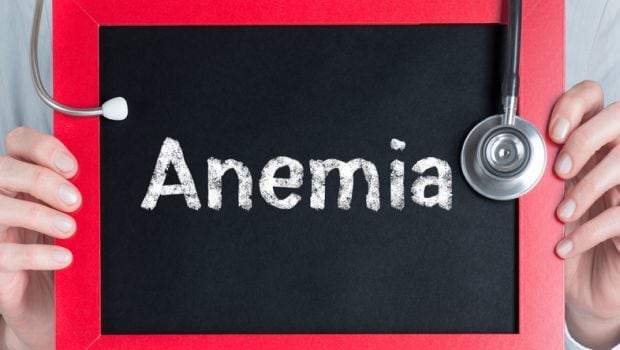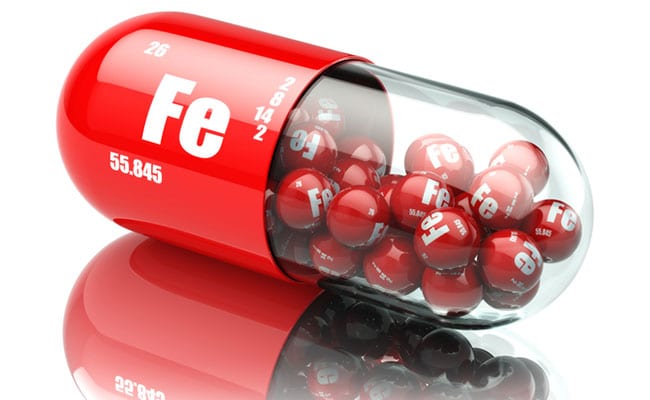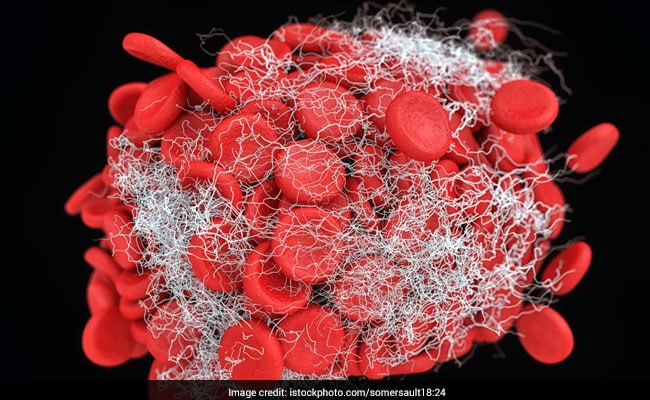When your body is unable to produce enough haemoglobin because of iron deficiency, it causes microcytic anaemias.

Microcytic anaemias are caused because of iron deficiency in the body
HIGHLIGHTS
- Iron deficiency can cause microcytic anaemia
- Anaema is caused because of low haemoglobin in red blood cells
- Green leafy veggies are a rich source of iron
Microcytic anaemia is a condition where the body has fewer than normal red blood cells. Red blood cells that are smaller than usual in size are described as microcytosis. Anaemia is a condition which happens when your normally functioning red blood cells become low in numbers. When your body is unable to produce enough haemoglobin, it causes microcytic anaemias. For producing haemoglobin, the body needs sufficient iron. Iron deficiency or the body not getting enough iron from natural food sources is one of the leading causes of microcytic anaemias.
Symptoms of microcytic anaemia
Microcytic anaemia symptoms don't appear in the initial stages. It is only in the advanced stages that that shortage of red blood cells begins affecting body tissues.
When microcytic anaemia reaches it advanced stages, you will feel extreme weakness, fatigue and tiredness; your stamina will go down and you feel short or breaths. Also, your skin will get pale and you feel dizzy all the time.
If these symptoms continue for a period more than 2 weeks, you must visit your doctor.

Photo Credit: iStock
Also read: Side Effects Of Using Iron Supplements: Know Them
Types of microcytic anaemia
Hypochromic microcytic anaemia
Under this condition, the body produces red blood cells that are smaller in size and are also more pale than normal. Haemoglobin in red blood cells is lesser than normal in hypochromic microcytic anaemia. Iron deficiency anaemia, thalassaemia, sideroblastic anaemia are the 3 kind of hypochromic micorcytic anaemia.
Iron deficiency anaemia is the most common kind of anaemic which happens because of iron deficiency in your diet. Among women, chronic blood less because of too frequent or heavy periods can lead to gastrointestinal bleeding and irritable bowel syndrome. Pregnant women can also get iron deficient.
Thalassemia is a kind of anaemia which can be inherited in family. The condition leads to mutation in genes which can affect haemoglobin production in the body.
Sideroblastic anaemia is a condition which is inherited because of mutation in genes. It adversely impacts the body's ability to integrate iron for production of haemoglobin.
Non-chromic microcytic anaemia
This is a condition in which haemoglobin in red blood cells is completely normal, and the hue of red is neither too deep in colour nor pale. Anaemia of inflammation and chronic disease anaemia is considered as non-chromic microcytic anaemia. It can affect people suffering from tuberculosis, HIV/AIDS, Crohn's disease, rheumatoid arthritis, diabetes mellitus, kidney diseases and cancer. All these conditions prevent normal functioning of red blood cells in the body.
Also read: Boost Your Iron Levels By Eating These Foods
Hyperchromic microcytic anaemia
Under this condition, haemoglobin in red blood cells is more than normal. This makes red blood cells have a deeper hue of red than normal. Such kind of anaemias is quite rare.
Other causes of anaemia
Deficiency of copper, lead toxicity, excessive zinc and alcohol and drug abuse can also cause anaemia.
Diagnosis of microcytic anaemia
A complete blood count (CBC) blood test can help in diagnosing microcytic anaemia. If you are diagnosed with anaemia, another test known as blood smear test will be done. This test helps in spotting if your red blood cells have gone through microcytic or macroctyic changes.
In case you stomach of abdominal pain, a few more tests will be required. These include CT scan of abdomen, abdominal ultrasound and upper GI endoscopy. Women who experience pelvic pain and heavy blood flow during periods will be checked for uterine fibroids or other conditions which are leading to these symptoms.
Also read: What Do High TLC And DLC Levels On A Blood Test Report Mean?
Treatment for microcytic anaemia
Treating the underlying cause or condition of microcytic anaemia is the key to treat it. Supplements of iron and Vitamin C might be suggested to you. This will be followed by treating the causes such as chronic or acute blood loss. Women are often given hormone therapy with the help of birth control pills.
In case the microcytic anaemia is to severe, it can increase risk of conditions such as cardiac failure - which is usually treated by blood transfusion.
Prevention of microcytic anaemia
Iron deficiency is the leading cause of microcytic anaemia and it can be prevented by consuming a diet rich in iron and Vitamin C. Vitamin C is require to enable your body to absorb the consumed iron.

Foods rich in iron include red meat, dark leafy green veggies, poultry, beans, raisins, oranges, grapefruits, red peppers, Brussel sprouts, kale, strawberries and broccoli to name a few.
Disclaimer: This content including advice provides generic information only. It is in no way a substitute for qualified medical opinion. Always consult a specialist or your own doctor for more information. NDTV does not claim responsibility for this information.
DoctorNDTV is the one stop site for all your health needs providing the most credible health information, health news and tips with expert advice on healthy living, diet plans, informative videos etc. You can get the most relevant and accurate info you need about health problems like diabetes, cancer, pregnancy, HIV and AIDS, weight loss and many other lifestyle diseases. We have a panel of over 350 experts who help us develop content by giving their valuable inputs and bringing to us the latest in the world of healthcare.














